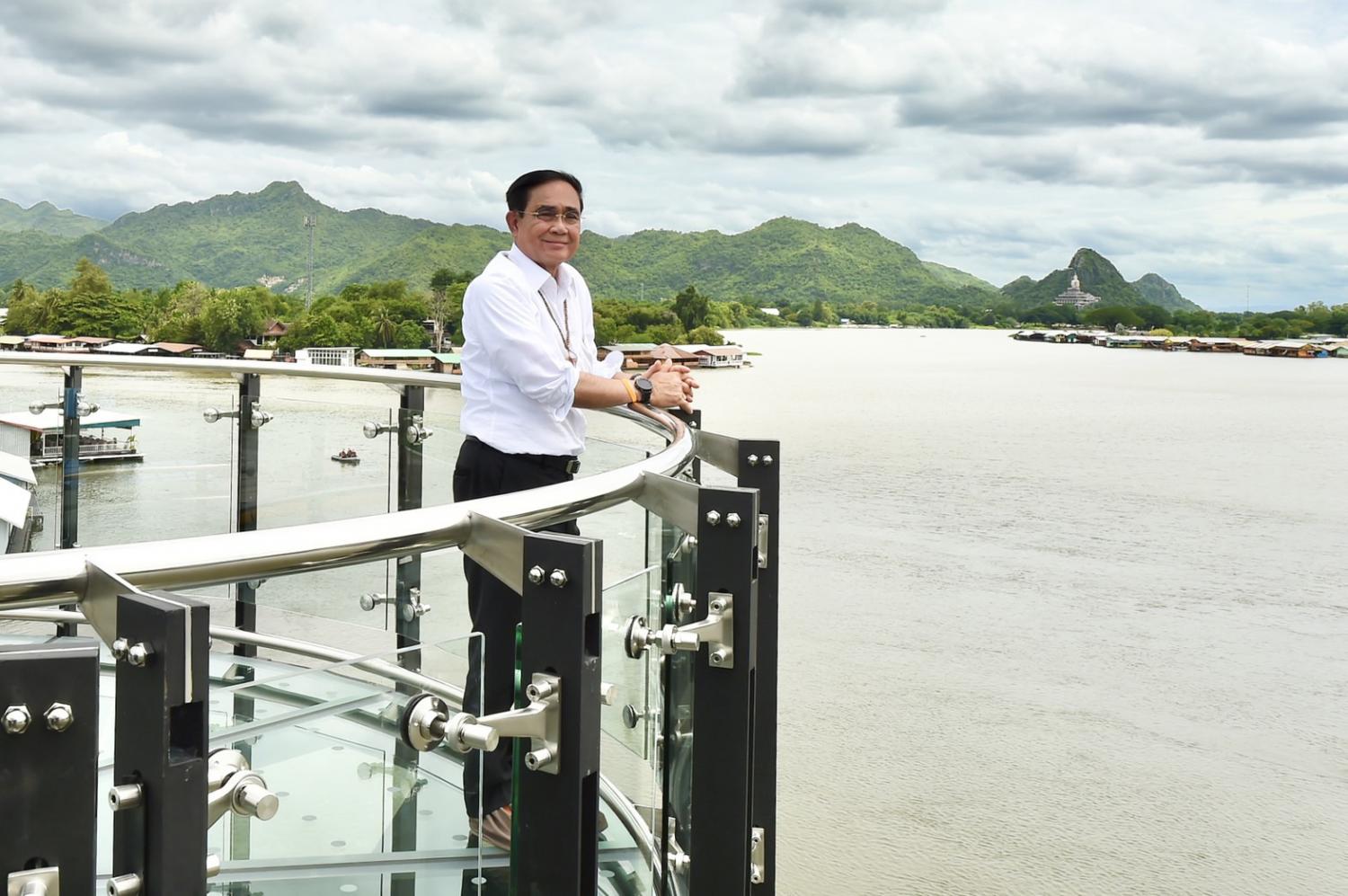
The political temperature is rising ahead of Aug 24 -- a date that will likely decide the fate of Prime Minister Prayut Chan-o-cha's political career, as well as the country's future political landscape.
A dispute over the official end date of Gen Prayut's eight-year tenure is gathering steam as his opponents and pro-democracy activists seek a Constitutional Court interpretation of when this should be, in line with the current charter.
Section 158 of the latest 2017 Constitution stipulates that the term of a prime minister must not exceed eight years. The tenure limit was imposed by the now-defunct Constitution Drafting Committee (CDC), which reportedly crafted Section 158 to prevent any political leader gaining undue dominance, for example fugitive ex-premier Thaksin Shinawatra, who is known for introducing a parliamentary dictatorship.
To all intents and purposes, as of next week -- Aug 24, to be exact -- Gen Prayut will have been running the country for eight years. For the first four, he was in power as the junta leader, while the remaining four years began in 2019 when he became head of the Palang Pracharath Party (PPRP)-led coalition.
The dispute revolves around when his tenure should be considered as having officially begun. Was it in 2014, when he launched the putsch and became the de facto prime minister of the junta government? Or was it in 2019 after the national election -- two years after Section 158 came into effect?
As the debate heats up, minutes of a CDC meeting in 2018 have become more important. They quote Meechai Ruchupan, speaking in his capacity as CDC chairman, as saying that the eight-year tenure of an incumbent prime minister should include the period before any change to the charter as well as after. That meeting took place on Sept 7, 2018, one year before the new charter came into force.
Suphot Khaimuk, a former charter court judge and ex-deputy chairman of the CDC, seconded Mr Meechai's thoughts. However, he later backtracked, insisting the quoted statements were just Mr Meechai's "personal opinion" and should not be applied literally.
Gen Prayut's tenure, Mr Suphot added, should be counted from the day it was royally endorsed which is June 9, 2019. Mr Suphot was of the view that Gen Prayut's eight-year tenure, as limited by the charter, will conclude on June 9, 2027.
Regardless, Gen Prayut is determined to cling to power, ignoring all calls for him to respect the charter and follow in the footsteps of late statesman Prem Tinsulanonda, who observed political etiquette and knew better than trying to overstay his welcome.
Gen Prem, who had run the country for eight years as a non-partisan leader, made history in 1983 when he turned down offers by politicians to reclaim the premiership.
In knowing his limits, Gen Prem stepped down gracefully and earned even more respect.
However this is not the case for Gen Prayut.
Should he survive the charter court's interpretation, the army chief-turned politician aspires to make a comeback after the next general election in 2023.
In that case, his tenure would surpass nine years, in line with one of his most famous statements, which appeared in the form of a line in a song he composed. It runs: "Please give me a little time."
Indeed, Gen Prayut's hoped-for comeback, although difficult, is not entirely impossible.
Don't forget that 250 senators appointed by Gen Prayut are still here to give him a solid backup. Their five-year term, as stipulated by a provision under the 2017 charter, will end in the next two years. In other words, the Senate will have a chance to name another prime minister.
Apart from the Senate, there are other political mechanisms which have given Gen Prayut and his "brothers in arms" an advantage over their rivals from day one. Just take a look at the various rulings by the so-called independent agencies under the 2017 charter, which in effect got rid of the ex-junta boss's political enemies.
The controversy over the PM's tenure limit gives the Constitutional Court something of a dilemma to deal with. If it rules in favour of Gen Prayut, as it has done in the past, the public may say "enough is enough" and look for change.
Another possibility is the public may turn their anger into support for the opposition parties when they cast their ballots in the next election. As several polls have shown, Gen Prayut's popularity is now dwindling by the day.
So should he step down now, as Gen Prem did decades ago? Indeed, this is a chance for Gen Prayut to make a graceful exit and regain some lost respect in doing so. Unfortunately, he fails to see it that way.
Apparently, all the favourable mechanisms accorded in the 2017 charter, as well as his absolute control over the army and civil service, have blinded him to the "crisis of trust" that has since built up, which could ultimately prove his undoing.
